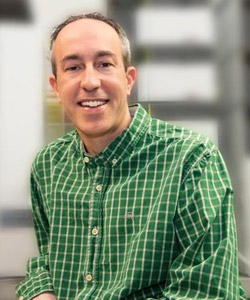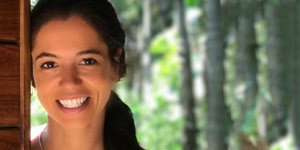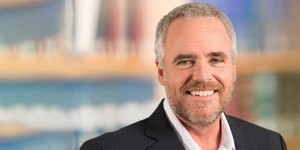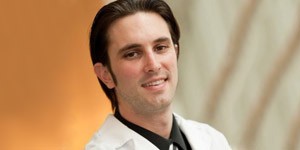Meet the Experts is a series of interviews conducted by experts from the field of Cannabis to world leaders in research and clinical practice of Cannabis as medicine.

Jeffrey (Jeff) Raber received his B.S. in biochemistry from Lebanon Valley College, PA and subsequently a Ph.D. in organic chemistry from the University of Southern California.
At USC, Jeff was awarded the Harold and Lillian Moulton Fellowship for his efforts on developing new synthetic methodologies useful in pharmaceutical drug discovery and manufacturing efforts.
Driven by a desire to find his own medicine and make a positive contribution to society, Dr. Raber founded The Werc Shop in 2010 with a focus on botanical analysis, new product developments and sustainability. The Werc Shop’s first goal was addressing unmet public health and safety needs within the medical cannabis community. Dr. Raber’s detailed investigations into the chemistry of cannabis, including 5 peer reviewed publications, provide a unique perspective and knowledge base useful in assisting state and local regulators in the construction and implementation of effective regulatory solutions for the safe and sustainable delivery of medical cannabis to qualified patients and adult consumers. Dr. Raber currently serves as the Executive Director of the Association of Commercial Cannabis Labs (ACCL).
Fundación CANNA: Thank you, Dr. Raber, for agreeing to participate in this series of interviews with experts on the science of cannabis. How did you first got involved in the cannabis industry?
Jeff Raber: In the late fall of 2008 my brother worked for a construction company that was asked to build a storefront dispensary in Orange County, CA. I remember saying that sounded illegal, but he replied they told him there were laws around providing medical cannabis to qualified patients, and that it was allowed to be utilized by patients as a medicine. My background in graduate school was on designing new molecular entities, new synthetic pathways to produce existing and novel medicinal agents, and understanding the tools doctors utilize to help patients get well. When I heard the word medical, I dove right in and started exploring what cannabis had to offer from a chemical/molecular sense. I found an enormous, untapped, treasure trove and was absolutely enthralled and totally engaged!
FC: How did you decided to found the Werc shop? How was the cannabis scene in California?
JR: The idea to found The Werc Shop came in the early part of 2009, when I heard President Obama say that federal resources would not focus on medical patients, they would instead focus on drug trafficking organizations. Being a patient myself, and understanding there are many patients benefiting from this medicine, we just don't understand it well enough to fully develop it more in a medicinal sense, we sought to start the company by initially offering laboratory testing services that would help us understand the molecular compositions of the products being made available to medical patients in California. We opened our service doors in 2010, and at that time there was next to no testing (I believe only 2 other laboratories existed around then) and less than a handful of degreed and credentialed scientists were operating in the industry (very very few with a PhD, especially not in chemistry like myself).
FC: Were those dangerous times to be in the industry? You got arrested at some point, do you want to share something about that experience? How do you see it in retrospective now that adult use is legal in California?
JR: It's still dangerous today, in many, many ways. Discussions with the local authorities are far better now than they were back then, many more open minds exist today, and new laws have finally offered clarity on how professionals such as ourselves need to operate in clear compliance with the law. What I've come to learn is that lawmakers are all too often not very good at writing clear and concise language that explains to everyone how the industry should operate. That's a very complex and challenging task, certainly not an easy one, and things are getting much better as it really is an evolution of making laws and regulations work together properly in the best interest of public health and safety. From operations requiring local permits and licenses, to understanding what is and isn't allowed in the products, finally down to what is required to be on the product labels and package inserts. Today I have many conversations with local law enforcement, local building inspectors, Fire Marshals and City officials of various types, in addition to state regulators and law makers. Everyone stands to benefit from everything we've learned about the supply chain, operator mindsets, processes, production efforts and how everything finally gets to the end medical patient consumers. The people of California voted to permit medical cannabis access and tasked the legislature with providing laws to afford this type of access, for almost 20 years Californians had been let down by their elected officials who could not put a proper legal and regulatory framework in place. Fortunately, today we are in a far better position of legal clarity for everyone and may even have the beginning of the best cannabis regulatory scheme in the Country, as we've had the benefit of learning from all of the other state operations that have proceeded before our regulatory scheme was formed and is now being implemented.
FC: California has passed new legislation regarding testing requirements. What improvements do you see compared to other states? What are, in your opinion, the weaknesses regarding testing? Do you think there should be a concern for public health in California considering the cultivation practices that the legislation allows for?
JR: The biggest improvement is that sampling is now required to be done by the laboratory from samples held at the distributor. A much better system of balance and far less gaming of the testing efforts can now persist. The number of testing labs currently will be the biggest hurdle, but the overall scheme of how testing is done and what tests need to be done is really rather good. It would be better if anyone could transport samples, that are clearly made tamper evident with clean chain of custody forms, back to the laboratory (not just the laboratory sample picker employee), but I think they'll make that fix here soon (it requires a change to the law, not just the regulations). By Jan 2019 all of the proper testing will be required and at that time I think the California consumer will be very well protected.
FC: How do you feel about the heavy marketing that comes along with a legal market? How much of the information available to consumers is based in scientific evidence?
JR: No medical claims and no product claims are permitted unless scientifically substantiated. I think there will be far less, and much improved, types of marketing going forward, but that may just be an optimistic scientist in me speaking! I do have hopes it will be that way though!
FC: What is the Association of Commercial Cannabis Labs (ACCL)? How is your relationship with other testing labs?
JR: The ACCL is a group of laboratory operators who are looking to harmonize and standardize good laboratory efforts for the cannabis testing industry. Many labs, from across the country, are members and everyone is working together to solve as many challenges as we collectively can. It is an exceptionally friendly network.
FC: The Werc shop offers a variety of services beyond testing. Which one is more popular? Other than lab testing, what areas of cannabis science interest you more? What are "cannabaceuticals", your trademark?
JR: Our white-label contract manufacturing consulting efforts are the most popular. Helping brands build the best products and properly navigate the entire regulatory scheme is what we're best aimed to deliver. Interactions of the entourage effect, which molecules are important for driving which physiological effects are some of our most interesting areas. That along with how to efficiently and cost effectively produce these complex products in a standardized fashion!
Cannabaceuticals are cannabis-based products that act like either nutraceutical, cosmeceutical or pharmaceutical type products for the end consumer. A medicinally slanted product if you will. Cannabis based ceuticals was the inspiration for the word!
FC: You have become an assiduous speaker in cannabis events. Can you tell us which are your favorite events? How do you deal with the intrusiveness of untrained, self-proclaimed scientific experts?
JR: I most like panels and interactions with the audience. Answering questions is probably my most favorite part. It's very easy to deal with those types when you are exceptionally well-informed. A little bit of patience and plenty of proper info usually handles them very well!
FC: You have done great work at characterizing different cannabis chemotypes and postulating the need of a reclassification of varieties based on chemovars. What is your take on the effectiveness of whole-plant vs. isolated compounds debate?
JR: To me, there's no more debate. It's all about whole-plant and how closely can you make a standardized, reproducible, broad-based cannabis composition. That is going to be far more physiologically superior and effective than a single molecule approach.
FC: Which of your scientific accomplishment make you feel more proud?
JR: I don't think I've achieved that one just yet, there's still so much to do! I'm very proud of the team we have assembled, all that we have been able to do thus far, and what I believe we will continue to do in the not too distant future. Awakening many people to understanding that cannabis can be a very effective therapeutic when properly produced is probably what I am most proud of at this time.
FC: Thanks so much for your time and attention, Dr. Raber!


